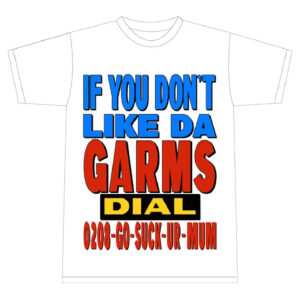
Are you offering meaningful support but still struggling to get steady clients? You’re not alone. Many mental health professionals in the U.S. face the same challenge. Despite years of education and deep clinical training, marketing often feels like a foreign language. Therapists are trained to heal, not to promote.
But here’s the truth: your practice stays hidden without strong marketing services for counselors. You may depend on referrals or outdated directories that don’t convert anymore. Maybe you’ve even tried a few social posts or joined a therapist directory, only to hear crickets. The real issue? There’s no strategic plan behind those efforts.
In this guide, you’ll learn how to apply proven content marketing strategies designed specifically for counselors and therapists. You’ll gain clarity on attracting the right clients, communicating your services with authority, and building long-term visibility in a competitive landscape.
Clarify Your Audience: Speak to One, Not Everyone
One of the biggest mistakes in marketing services for counselors is writing for too many people. When your messaging is vague, it lands nowhere. Instead, define a clear client profile.
Think about these factors:
- Demographics: Age, occupation, location.
- Psychographics: What do they worry about? What keeps them up at night?
- Behavior: Are they searching Google for anxiety help? Do they ask for therapy referrals in Facebook groups?
Refining your ideal audience lets you use language that resonates with their needs and pain points. Triumph advertising methods shine in this area; they prioritize laser-sharp targeting over generic outreach.
Use SEO-Centered Blog Content: Rank Where They Search
Many potential clients search online before ever reaching out. Your blog needs to be the answer they find. But not just any blog. You need content optimized around how your clients search.
Use tools like Google Keyword Planner or SEMrush to identify long-tail search terms like:
- “Affordable anxiety therapy in Boston”
- “Relationship therapist for men in Dallas”
- “Online EMDR sessions for trauma recovery”
Each blog post should:
- Target one primary keyword
- Include that term in the title, subhead, URL, and image alt text
- Answer a specific, real-world question
By writing detailed blog posts that solve real problems, your website gains authority in search rankings. This strategy builds traffic slowly but steadily, and it’s one of the smartest long-term approaches to marketing services for counselors.
Email Sequences That Educate and Build Trust
It’s not enough to get someone to visit your website. You also need a system to stay in touch.
Email marketing does that job well. Start with a lead magnet, a free resource like:
- A 5-day self-care email challenge
- A PDF checklist for dealing with burnout
- A guide to understanding therapy for first-timers
Once someone opts in, send them a short email sequence:
- Email 1: Introduce yourself and your philosophy
- Email 2: Address common misconceptions about therapy
- Email 3: Share a client success story (anonymized)
- Email 4: Offer a simple, no-pressure call to book a consultation
Triumph advertising principles suggest using behavior-based segmentation, which means sending messages based on what readers click or open. This keeps your emails relevant, improves open rates, and increases conversion.
Professional Website with Clear CTAs: Your Digital Office
Your website isn’t a brochure. It’s a conversion tool.
Design it with:
- Above-the-fold calls to action (e.g., “Book a 15-minute intro call”)
- Mobile-friendly layout
- Fast load times
- Secure, HIPAA-compliant contact forms
Include your credentials, methods, pricing transparency, and an FAQ section. Think of it this way: if your blog brings visitors, your website should turn them into clients.
Most importantly, make sure your copy sounds like you, not corporate jargon. Clients connect when the tone feels genuine but polished.
Create Long-Form Educational Content: Authority Builds Trust
Clients want to know you’re competent before trusting you with their problems. Long-form articles, whitepapers, and client education guides allow you to demonstrate expertise.
Here’s a structure to follow:
- Identify a common challenge (e.g., “Why Anxiety Feels Worse at Night”)
- Break it into sections with clear, informative subheads
- Use stats, quotes from research, and actionable takeaways
- Always close with a soft CTA
These materials don’t just improve SEO. They give prospects a chance to build confidence in your clinical knowledge before they call.
This is especially important in marketing services for counselors where trust must be earned before action.
Strategic Social Media Posting: Show, Don’t Just Tell
You don’t need to be on every platform. Focus where your audience spends time, often Instagram, LinkedIn, or YouTube.
Create weekly content buckets:
- Monday: Mental health myth-busting
- Wednesday: 60-second educational videos
- Friday: Behind-the-scenes or therapist Q&A
Use hashtags, consistent branding, and short captions. Most importantly, include calls to action like “DM to ask about therapy slots” or “Link in bio to book.”
Avoid personal oversharing. Keep content professional yet approachable. Maintain clinical boundaries while offering genuine value.
Paid Ads with Narrow Targeting: Fast Results, Small Budget
If you need clients fast, paid ads can help, but only with proper targeting.
Run Google Ads for therapy-related search queries. Use Facebook Ads to retarget site visitors or reach niche groups (e.g., “parents of teens with anxiety”).
Make sure ads link to a landing page, not your homepage. This page should:
- Match the ad copy
- Use one CTA
- Limit distractions
This method works especially well with triumph advertising insights on user behavior. A/B test your messaging and visuals to see what converts best.
Conclusion
You already know how to help your clients. Now it’s time to help your practice grow. With a strong focus on marketing services for counselors, your message won’t get lost anymore. Instead of waiting for referrals, you’ll have consistent online visibility, professional authority, and a steady stream of the right clients.
Begin with one strategy from this list. Build momentum. Then layer in others as you gain confidence. A successful private practice doesn’t need luck, it needs a system. Let that system start today.
FAQs
- Why is content marketing important for therapists?
It helps attract clients who are actively searching for mental health solutions. It builds trust before the first session happens. - How often should I post blogs on my website?
Aim for at least two blog posts per month. Focus on answering specific questions clients might type into Google. - Is social media necessary for a therapy practice?
It depends. If your audience is active on a platform like Instagram or YouTube, use it. Stay consistent and use professional branding. - Should I handle marketing myself or hire someone?
Start by learning the basics. As you grow, consider outsourcing technical tasks like SEO or paid ads to specialists.




